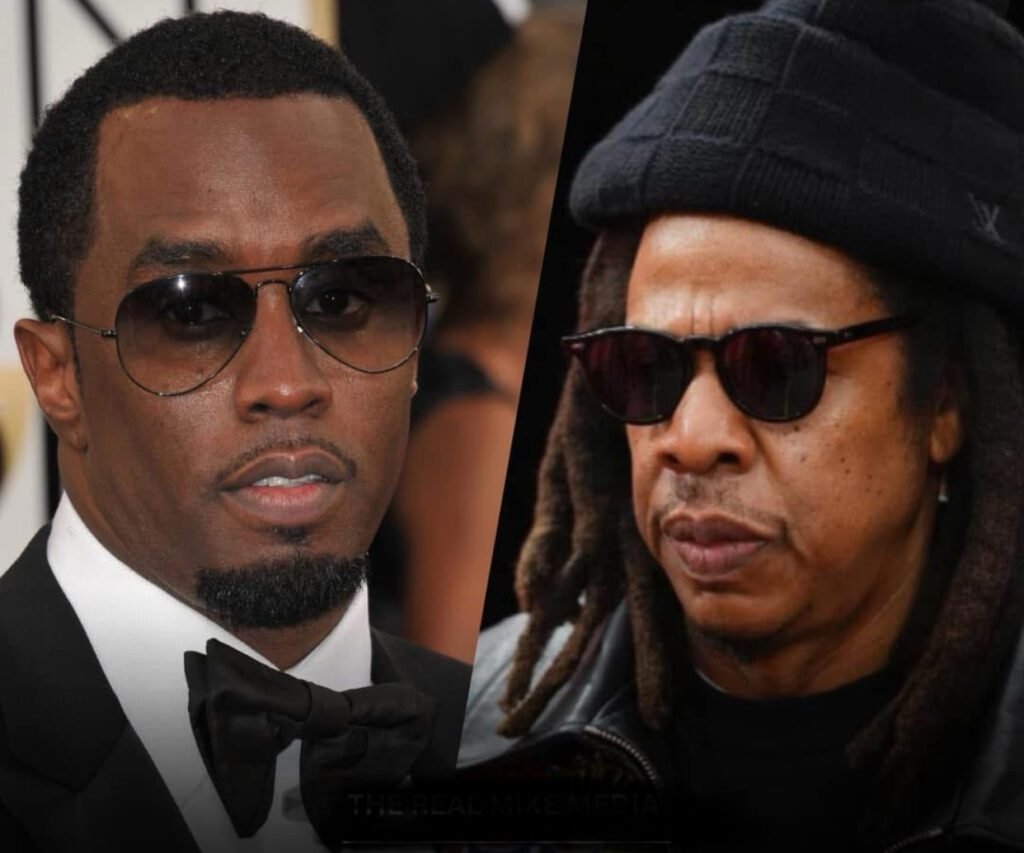People believe Jay-Z and Diddy are only being targeted because they’re successful wealthy black men.

The conversation around Jay-Z and Diddy, two of the most prominent figures in the music and business worlds, has taken a divisive turn as some believe they are being unfairly targeted due to their success as wealthy Black men. Their rise to the top is nothing short of extraordinary, but the scrutiny they face continues to spark debates about race, power, and societal double standards in America.
Jay-Z, born Shawn Carter, and Sean “Diddy” Combs are not just artists; they are moguls who have transcended their initial careers in music to build empires spanning industries such as fashion, liquor, media, and sports. For years, they have symbolized the limitless potential of Black ambition and ingenuity, inspiring millions while simultaneously challenging the status quo. Yet, their wealth and influence seem to make them frequent targets of criticism, controversy, and, in some cases, legal challenges. To many, this pattern of scrutiny is emblematic of the broader societal tendency to question, undermine, or vilify successful Black individuals in ways their white counterparts are less likely to experience.
This argument isn’t new. Historically, powerful Black figures in America have often been met with resistance. Critics claim this stems from a deep-seated discomfort with Black excellence and autonomy, particularly when it challenges traditional power structures. In the case of Jay-Z and Diddy, some believe their visibility and dominance make them easy targets for those unwilling to acknowledge or accept the growing influence of Black entrepreneurs and innovators.
Diddy’s legacy as a record executive, entrepreneur, and cultural icon is undeniable. From founding Bad Boy Records to launching successful ventures like Ciroc vodka and Revolt TV, he has redefined what it means to be a music mogul. Despite his achievements, allegations and lawsuits have recently clouded his reputation. While it’s important to let investigations and legal processes unfold, the timing and nature of the accusations have fueled speculation about whether these controversies are part of a broader effort to diminish his accomplishments.
Similarly, Jay-Z has faced his share of challenges. From navigating public disputes to enduring criticism for his business decisions, such as his partnership with the NFL, he has consistently been under the microscope. Critics often point out how his moves are dissected and judged more harshly than those of his peers in similar positions. For instance, when Jay-Z launched Tidal, the music streaming service, it faced immediate backlash and skepticism, despite being a groundbreaking move toward artist ownership. Many argued that the resistance to Tidal was less about the platform itself and more about who was leading it.
Supporters of Jay-Z and Diddy argue that this scrutiny reflects a broader cultural phenomenon where successful Black individuals are subjected to more intense levels of judgment. They suggest that society often expects Black entrepreneurs to remain in specific lanes, and when they expand beyond those boundaries, they face backlash. The notion of a Black man not only achieving wealth but also wielding significant influence is still unsettling for some, particularly in industries historically dominated by white leaders.
Another layer to this debate is the question of accountability versus disproportionate targeting. Supporters of Jay-Z and Diddy acknowledge that no one is above criticism or the law. However, they argue that there’s a difference between holding individuals accountable for their actions and subjecting them to what feels like excessive scrutiny. The concern is that powerful Black men are often painted with a broader brush of suspicion, with their missteps amplified and their successes diminished.
The narratives surrounding Jay-Z and Diddy also highlight the importance of context. Both men have worked tirelessly to build their brands and uplift their communities. Jay-Z has been a vocal advocate for criminal justice reform, using his platform to shed light on systemic issues. Diddy has similarly championed causes related to education, voter empowerment, and Black entrepreneurship. These contributions often go overlooked in mainstream discussions, overshadowed by controversies or critiques.
For many, this debate isn’t just about Jay-Z and Diddy. It’s about what they represent—a challenge to the stereotypes and limitations historically placed on Black men in America. Their success disrupts narratives that equate Blackness with inferiority or incapability, and for some, that disruption is uncomfortable. The idea that they are being targeted because of their race and success is a reflection of larger societal issues that go beyond individual circumstances.
The stories of Jay-Z and Diddy remind us of the complex realities that come with being a trailblazer. Their journeys are marked by resilience, innovation, and a refusal to conform to expectations. They’ve redefined what’s possible for Black entrepreneurs, but their prominence has also made them lightning rods for criticism and controversy.
Whether one believes they are being unfairly targeted or simply held accountable like anyone else, it’s undeniable that their stories reflect broader themes of race, power, and privilege in America. As the conversations around them continue, it’s crucial to consider not only their individual actions but also the societal dynamics at play. In doing so, we can better understand the challenges and triumphs of those who dare to break barriers and redefine what it means to succeed.





